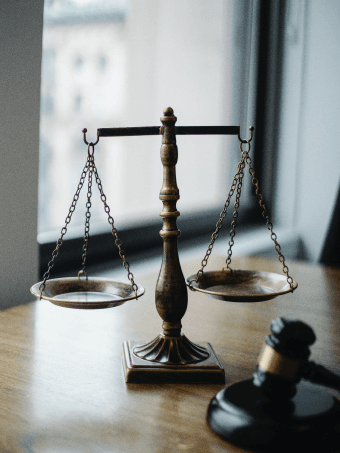What is a trademark?
Trademark is a sign capable of distinguishing the goods or services of one company from the goods or services of other companies. Three most commonly used types of a trademark are:
Name (textual element)
Logo (graphical element)
Combined (text + logo)
In practical terms, trademarks are closely connected to branding as it is often the visual element alongside the name of a brand that represents the trademark distinguishing the company’s product and service offerings from those of competitors. At the same time, the trademark offers a myriad of benefits, including a considerable level of legal protection against infringement attempts. As the purpose of a trademark is to signal a recognizable source of goods or services to the customer, only a distinctive-enough trademark can achieve this purpose without consumer confusion (How do I know if my brand name is sufficiently distinctive?)
What is trademark infringement?
Trademark infringement is an unauthorised use of a registered trademark by any third party on any goods or services identical with the goods or services specified on the register. According to general trademark laws, a registered trademark is infringed when the infringer, without obtaining consent from the registered trademark holder, uses an identical logo or a name, for its goods or services despite the possibility of confusion by the average consumer. Examples of trademark infringement include instances in which one company sues because it contends that another company is profiting from its trademark without approval.
What is trademark exhaustion?
Generally, the trademark owner's right to prevent the subsequent sale of products marked with its trademark is not unlimited, as that would represent a restriction of the basic principle of the free movement of goods. This is commonly referred to as trademark rights "exhaustion." The principle of trademark rights "exhaustion" is that the trademark owner can no longer prohibit the further distribution of goods placed on the market with their consent. Trademark exhaustion plays a major role in determining trademark infringement by the distribution of original goods. The rules guiding under what conditions the resale of branded goods is permitted, however, differ from one jurisdiction to another.
Despite that, the owner of a registered trademark is generally entitled to prevent the later sale of the goods and services introduced to the market under their trademark if legitimate reasons justify such obstruction. Some of the legitimate reasons to prevent the resale of the company's products may include:
change or deterioration of the products,
serious damages to the reputation of the original producer,
confusion on the part of consumers regarding the existence of an economic link between the owner of the mark and the third party using it,
the practice of the industry concerned
the scope of information provided on the resold products (new labeling)
Trademark exhaustion in relevant lawsuits
Converse vs Metro
Converse Inc. is an American lifestyle brand that markets, distributes, and licenses footwear, apparel, and accessories, including casual shoes known as "Converse All Star Chuck Taylor". In September 2008, major trading company Metro Cash & Carry offered shoes in its outlets that bore the Converse trademark. Converse claimed the shoes sold were counterfeit products and their distribution by Metro constituted trademark infringement. Metro argued that the shoes it supplied were marketed in Europe with the consent of Converse, which meant that trademark rights were exhausted. According to jurisprudence, in a trademark lawsuit, the person invoking trademark rights exhaustion must also prove it. In its judgment of March 2012 (I ZR 137/10 - CONVERSE II), the German Federal Court of Justice (Bundesgerichtshof – BGH) ruled that since Metrowas unable to offer any suitable proof that the sales partners actually received the goods in question from the trademark owner, Metro was liable for trademark infringement.
SodaStream vs MySoda
SodaStream company sells carbonation devices that allow consumers to make sparkling water from tap water. Its trademarks appear on the labels and are engraved on the aluminium body of these cylinders. MySoda has been offering filled carbonated cylinders in Finland since June 2016. Its cylinders are compatible with both its own carbonating apparatus and SodaStream's apparatus. MySoda received the empty SodaStream cylinders through distributors, refilled them, removed the original SodaStream trademark and replaced it with its own labels containing the MySoda logo. SodaStream claimed that MySoda had infringed its trademarks in Finland by marketing and selling refillable carbon dioxide cylinders bearing the SodaStream trademarks without its consent. It argued that MySoda's practices created a substantial likelihood of confusion for the affected public regarding the origin of the carbon dioxide cylinders by creating a false impression that there was a business relationship between SodaStream and MySoda.
In its judgment C-197/21, the Court of Justice of the European Union (CJEU) affirmed that an undertaking that has introduced products to the market under its trademark, intended for repeated use and multiple filling, is not entitled to prevent another seller who has refilled these products and replaced the label indicating the original trademark with a different label, while leaving the original trademark visible on the said products. One legitimate exception would be that this new labelling gives consumers the wrong impression that there is an economic link between the reseller and the owner of the original mark, in which case the original trademark owner has legal grounds to prevent the resale of respective products.


